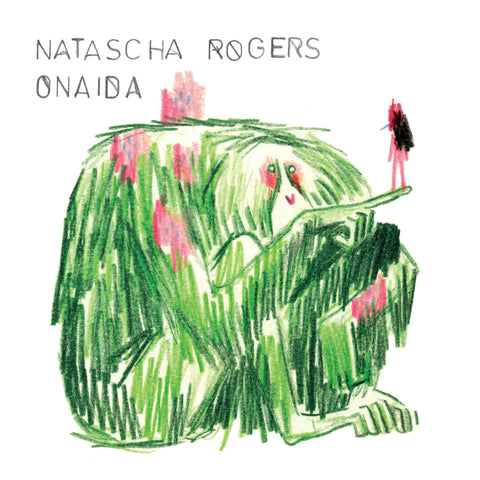With Onaida, Natascha Rogers dares to be intimate, unveiling a highly spiritual, chiaroscuro album that elevates purity to the level of the art of healing and reconciliation. A liberating round of folk.
Born in the Netherlands to a Dutch mother and a mysterious father with Amerindian origins, the young Natascha Rogers nurtured her four brothers, often moving and anchoring herself to the piano, a world in itself, an anchor, a landmark, when the horizon is too far off course. Breda, Belgium, California then Bordeaux... What hasn't changed is the upright piano on which, scale after scale, Natascha Rogers has developed her melodic gifts, rehearsing Chick Corea's Children's Songs or Yann Tiersen's oceanic repertoire.
Until one day, Natascha Rogers discovered a pair of congas that her father had secretly left on the doorstep of her home, like an enigma to be deciphered. Sensitive to the ancestral call of the drums, she travelled the Black Atlantic for several years to be taught by the greatest Mandingo and Afro-Cuban master percussionists. From then on, Natascha Rogers thrived on a humble, collective and therapeutic approach to music, developing her rhythmic expertise tenfold as she explored new grooves and new paths. But how do you find your own? By emptying herself, by dwelling in the shadows, by listening to what rustles underground. Natascha Rogers knows instinctively that power and vulnerability go hand in hand, requiring the courage to be herself and to allow herself to show it.
With Onaida, Natascha Rogers has taken up the challenge of shedding her skin and stripping naked her first instrument. From ostinatos to incantations, Onaida unveils a highly personal poetic territory populated by rivers of piano and songs from the Earth, underpinned by the ritual pulsations of the batá drums. In English, Spanish or Yoruba, Natascha Rogers unfurls on the back of her keyboards as many intimate ballads as universal prayers, inspired in turn by the mythical snake that visits her in her dreams, the Amerindian poet Joy Harjo, the wild women of the American storyteller Clarissa Pinkola Estes and the spirits of the Cuban santería.
A liberating round of folk, Onaida is a gesture of care, love and peace for the Living ("See", "Land", "Aniafa", "The Wound"), for women ("Sacred Night", "Run", "Move Echeke"), for the dead ("Ashes"), for the divine ("O Baba", "The West" with Piers Faccini) and for music itself ("Tambor", "Sanza"). Recorded at Pommerit-le-Vicomte in an exceptional setting with sound engineer Joachim Olaya and all the time in the world, Onaida is a veritable initiatory experience, a second birth for Natascha Rogers, who finds balance and accuracy in this singular opus.



